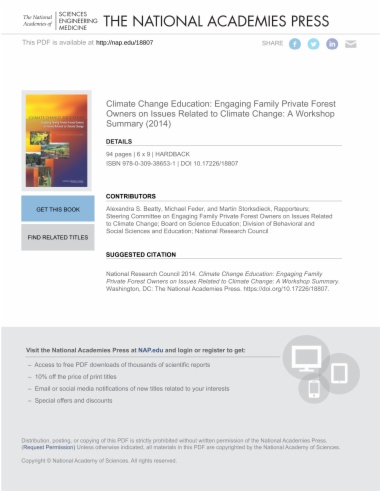

The forested land in the United States is an asset that is owned and managed not only by federal, state, and local governments, but also by families and other private groups, including timber investment management organizations and real estate investment trusts. The more than 10 million family forestland owners manage the largest percentage of forestland acreage (35 percent) and the majority of the privately owned forestland (62 percent). The Forest Service of the United States Department of Agriculture, which is responsible for the stewardship of all of the nation's forests, has long worked with private owners of forestland on forest management and preservation. At a time when all forestland is facing intensified threats because of the long-term effects of global climate change, the Forest Service recognizes that family forestland owners play a key role in protecting forestland. It is working to identify optimal ways to engage this diverse group and support them in mitigating threats to the biologically diverse land they own or manage.
Climate Change Education: Engaging Family Private Forest Owners on Issues Related to Climate Change is the summary of a workshop, convened by the National Research Council's Board on Science Education and Board on Environmental Change and Society as part of its Climate Change Education Roundtable series, to explore approaches to the challenges that face state foresters, extension agents, private forestry consultants, and others involved with private family forestland owners on how to take climate change into consideration when making decisions about their forests. The workshop focused on how findings from the behavioral, social, and educational sciences can be used to help prepare for the impacts of climate change. The workshop participants discussed the threats to forests posed by climate change and human actions; private forestland owners' values, knowledge, and dispositions about forest management, climate change, and related threats; and strategies for improving communication between forestland owners and service providers about forest management in the face of climate change.